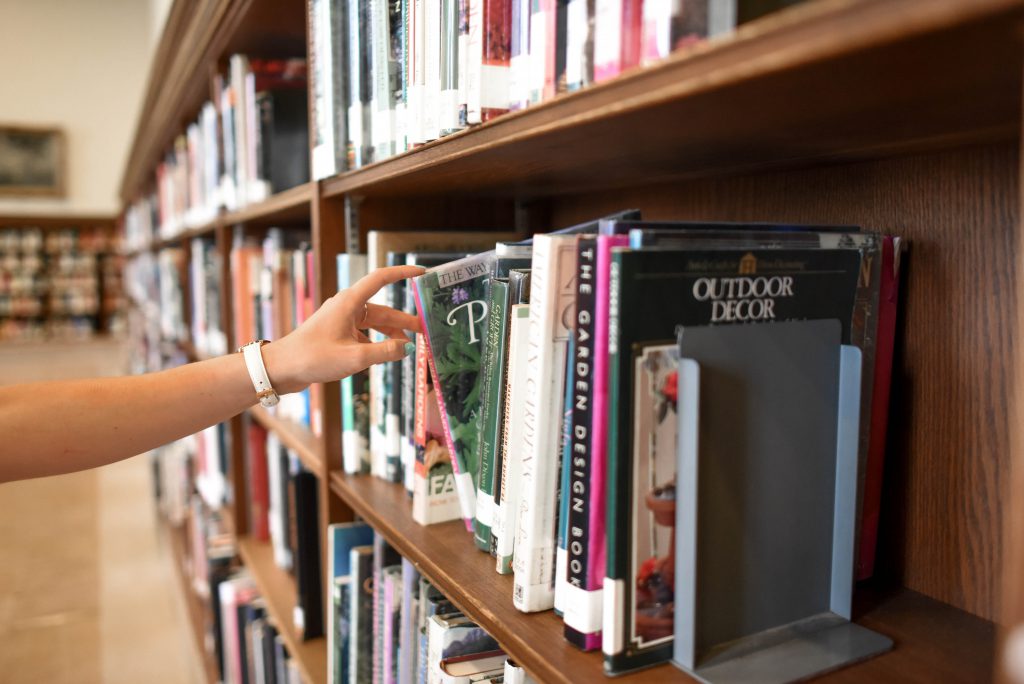Top Reasons You Should Go to the Library
Take Your Child to the Library Day falls in early February each year (this year it’s Saturday, February 5). In the digital age, it’s a good reminder of their many resources that help kids and families – and to pass on an appreciation of local libraries to each new generation. Public libraries aren’t just there to check out books, although easy access to literature is a good place to start. They also provide free access to tools and assistance to anyone who needs it – whether they’re jump-starting a job search or boosting their financial education.
Things can get a little stir crazy during the winter months. If you’re looking for inspiration to take your kid to the library or to swing by solo, we have a few ideas that you can borrow.
Access to Technology, Tools and Equipment at Public Libraries
Libraries used to be known primarily as the place to check out books that you would read and return once you were finished. They haven’t quite shed that reputation, despite housing many other types of resources, including access to technology lacking in many homes. Here are just some of the assets and equipment that public libraries provide in communities around the country:
- Books (paper, audio and online versions)
- Computers
- CDS (music and movies)
- Web access to online news and videos
- Reference material
- Voting facilities
- Study rooms
- Educational workshops
- Live readings and performances
Some libraries have expanded their offerings to include book clubs for adults, story times for kids, and cutting-edge creative events for teens. For the rest of us, they’ve made accessing online news, literature and entertainment from the comfort of our homes easier than ever.
Free Interactive Programs for Illinois Teens
If you have teenagers, find out what fun, educational programming exists in your area. For instance, Harold Washington Library in Chicago offers HWLC YOUmedia, a program focused on art, digital media and STEM (science, technology, engineering and math) projects. Teenagers can attend regularly scheduled workshops that teach them about topics ranging from sewing to studio recording. Online film and art programs are available for those who prefer virtual events.
People of all ages stand to benefit from free Wi-Fi and the ability to borrow laptops or video games. Want your kid to be certified to use cameras, an in-house production studio, drawing tablets, lighting equipment and 3D printers? They can do so by borrowing YOUmedia equipment under mentor supervision (for free with their library card and high school ID).
Financial Literacy and Personal Finance Programs at Libraries
Shutdowns notwithstanding, libraries are still a place to go to boost your knowledge on just about anything, and financial literacy tends to be a popular topic area of focus. That question you have about the stock market, getting out of debt, or job searching that you’re too embarrassed to ask a friend? A librarian’s job is to listen to anyone who walks through the door and help them get answers to whatever they need. And unlike your friend or spouse, they won’t judge or pester you will well-intentioned follow-up questions.
Programs promoted by the American Library Association include:
- Money Smart Week, an outreach effort that connects residents with area organizations to promote financial literacy
- Piggy Bank Challenge, which teaches the little ones about saving
- Money management activities with Girl Scouts
- One-on-one coaching and consultations
- Other community-oriented financial literacy programming
Like businesses and schools, libraries have had to adjust to a new normal by offering more virtual programming. But the pandemic didn’t put an end to their outreach efforts. When you and your loved ones learn the best ways to save, spend, budget and plan for the future, you can take steps toward securing your dreams.
Currency Exchanges Also Provide Easy Access to Personal Finance Services
What’s your single biggest money goal this year? Research by Money Smart Week indicates that 72% of people living in the U.S. are not financially healthy. Some 42.5 million Americans live below the poverty line. While you’re getting reacquainted with your public library branch, visit your local Community Currency Exchange (CCEA) – which also has a long history of addressing financial needs in neighborhoods – or check us out online:
- Hundreds of locations with flexible hours
- Services ranging from auto registration to cashing all types of checks
- A handy website chock-full of helpful tips and information
- Electronic bill pay, and much more
Contact the CCEA closest to you for information on hours and all the other services we provide. Or just swing by – our employees are ready to help!

With over 350 locations, many open nights, weekends, and holidays (and several stores with 24/7 availability), you can rest easy knowing your financial needs can be taken care of when you need them most. We’re in the heart of every community. Don’t believe us? See for yourself.